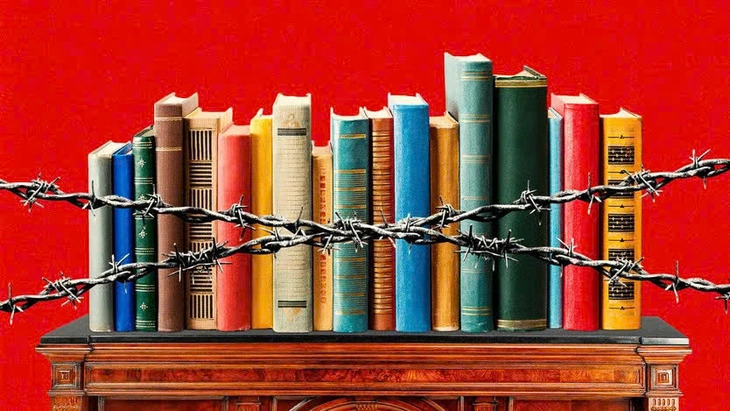A surge in book banning is sweeping across US schools, according to a recent report by The Economist on 7/8. Data from PEN America reveals that during the 2023-2024 school year, US schools received approximately 10,000 requests to remove or restrict books from libraries due to parental and political concerns over content deemed inappropriate for students.
Over half of the challenged books contain sexual content, with Sarah J. Mass's popular fantasy romance series, *A Court of Thorns and Roses*, topping the list. The series follows Feyre, a huntress who enters the magical world of Prythian after killing a wolf-like creature, which turns out to be a faerie. There, she falls in love with Tamlin, a faerie. As Feyre discovers a dark force threatening Prythian, she fights to protect her love and his world.
Despite being a *New York Times* bestseller, winning three Goodreads Choice Awards, and being nominated for several young adult literature accolades, *A Court of Thorns and Roses* faces challenges in schools due to its depiction of relationships between humans and faeries.
Other frequently challenged books include Margaret Atwood's dystopian novel *The Handmaid’s Tale*, which portrays a future where women are oppressed and used as reproductive tools.
 |
Books with explicit content face removal from school libraries. Illustration: *The Economist* |
Books dealing with teen issues, such as drug use, self-harm, and prostitution, depicted in three novels by Ellen Hopkins, also raise parental concerns. LGBTQ+ themes are among the most frequently targeted, with some schools restricting access to books on race and racism. This includes Maya Angelou's acclaimed memoir, *I Know Why the Caged Bird Sings*, and Alice Walker's Pulitzer Prize-winning novel, *The Color Purple*.
In response, schools have implemented book review processes before adding titles to libraries. Iowa's Parental Rights law allows disciplinary action against teachers who provide inappropriate materials to students. Some libraries are employing AI to vet content, a practice criticized for its potential to fabricate information.
The publishing industry describes the situation as "extreme censorship," fearing the impact on reading culture and critical thinking among young people. Some parents have taken drastic measures, targeting librarians and teachers. Martha Hickson, a media specialist at a New Jersey high school, was labeled a "pedophile" and accused of "distributing pornography" by parents for refusing to remove LGBTQ+ themed books. She faced online and offline harassment and threats, as reported by *American Libraries Magazine*.
Amidst the escalating book banning, librarians and publishers face challenges in combating censorship in schools and public libraries. Several states, including California, New Jersey, Colorado, Delaware, Illinois, Minnesota, and Washington, have enacted the Freedom to Read Act. This legislation aims to prevent schools and libraries from removing books based on subjective bias, requiring a clear process to justify removals and protecting library staff from legal accusations.
Chau Anh (*The Economist, American Libraries Magazine*)











